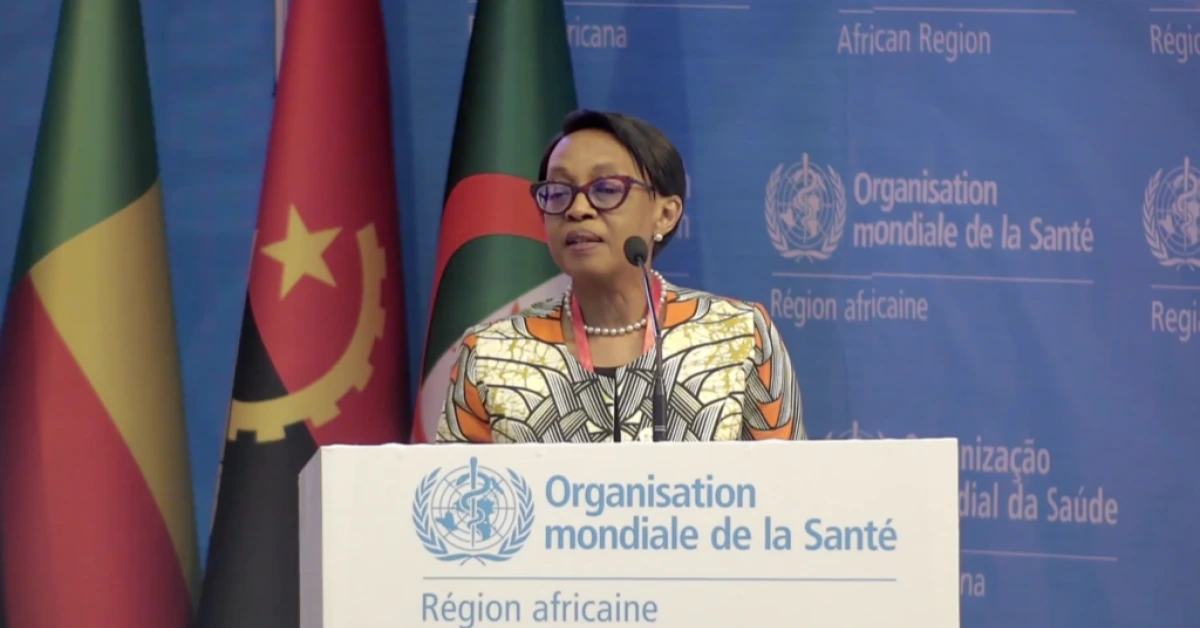
AFRICA – The World Health Organization (WHO) Regional Committee for Africa has decided to reopen nominations for the position of regional director following the unexpected death of director-elect Dr. Faustine Ndugulile in November 2024.
Dr. Ndugulile, who was due to assume office in February after confirmation by the WHO Executive Board, had secured 25 out of 46 votes in the election held during the regional conference in the Republic of Congo.
As per the resolution passed by the committee, the WHO Director-General will issue a letter to member states by January 21, inviting nominations for the position by February 28.
A virtual candidates’ forum is scheduled for April 2, followed by an in-person special session in Geneva on May 18, where member states will elect the next regional director.
This fast-tracked process is intended to ensure that the new director is in place by June 1, pending formal appointment by the WHO Executive Board in February 2026.
To expedite the process, Rule 52 of the region’s election procedures, which typically requires a minimum of six months for nominations, will be suspended.
Derek Walton, WHO’s legal counsel in Geneva, explained the plan, stating, “This session will be held just before the World Health Assembly, and at that point, the committee will make a fresh nomination for the position of Regional Director.”
The role of the WHO Regional Director for Africa is pivotal in addressing the continent’s public health challenges, including managing disease outbreaks, strengthening health systems, and implementing WHO policies tailored to African health priorities.
Dr. Ndugulile, a former deputy health minister and ICT minister in Tanzania, had represented the Kigamboni constituency in Dar es Salaam as a Member of Parliament since 2010. He also chaired Tanzania’s parliamentary health committee.
His unexpected passing leaves the race for regional director open, with the possibility of the three other candidates from the previous election—Dr. Ibrahima Socé Fall (Senegal), Dr. Richard Mihigo (Rwanda), and Dr. Boureima Hama Sambo (Niger)—being renominated by their respective countries.
Dr. Socé Fall currently serves as Director of the Department of Control of Neglected Tropical Diseases at WHO headquarters in Geneva.
Dr. Mihigo, now Gavi’s Senior Director of Programmatic and Strategic Engagement with the African Union and Africa CDC, previously worked with WHO Africa until 2022.
Meanwhile, Dr. Sambo is the WHO’s Head of Mission and Representative to the Democratic Republic of the Congo (DRC).
Whoever is ultimately selected will succeed Dr. Matshidiso Moeti, the first female Regional Director for WHO Africa, who is retiring after two terms spanning a decade.
Dr. Moeti, widely praised for her leadership during the COVID-19 pandemic, leaves behind a legacy of resilience and significant contributions to public health in Africa.
The decision to reopen nominations, hold a new election among the remaining candidates, or choose the runner-up will ultimately rest with the regional committee.
The WHO Constitution grants regional committees the authority to adopt their own rules of procedure (Article 49) and outlines the shared responsibilities between the Regional Committee and the Executive Board in the selection process (Article 52).
According to a WHO spokesperson, “The Regional Committee nominates a candidate, and the Executive Board appoints the Regional Director. Both are responsible for their own part in the process.”
The 47-member WHO Africa region, distinct from the Eastern Mediterranean Region that includes seven predominantly Muslim North African countries, faces pressing health challenges such as infectious disease outbreaks, vaccine distribution inequities, and the growing impact of climate change on health.
In the meantime, it remains unclear whether Dr. Moeti will remain in her position until the new director is appointed.
While the WHO has not commented on this matter, it has reaffirmed its commitment to ensuring a seamless transition to maintain continuity in addressing the region’s critical health needs.
XRP HEALTHCARE L.L.C | License Number: 2312867.01 | Dubai | © Copyright 2025 | All Rights Reserved